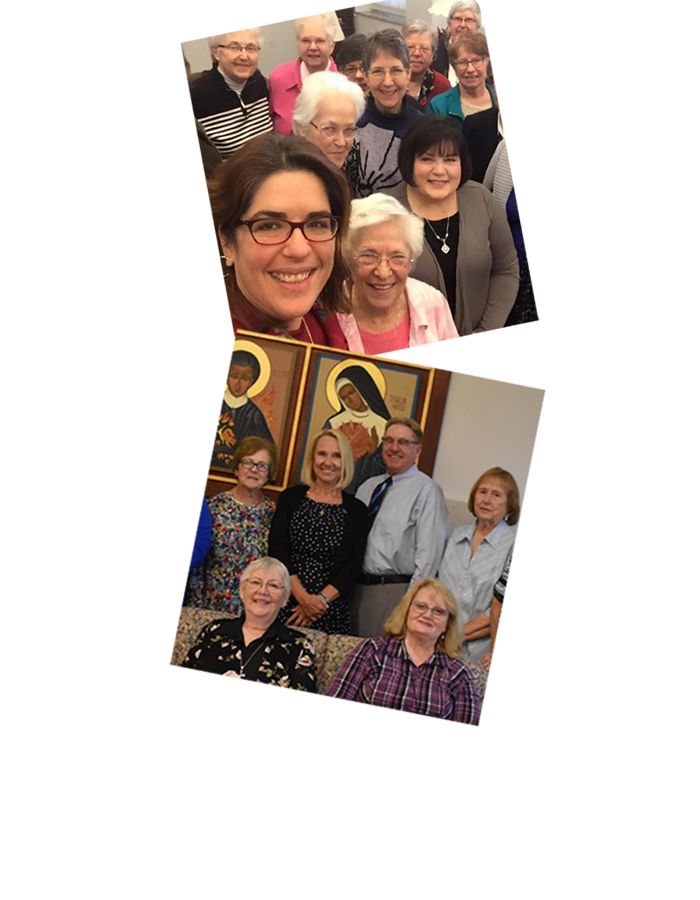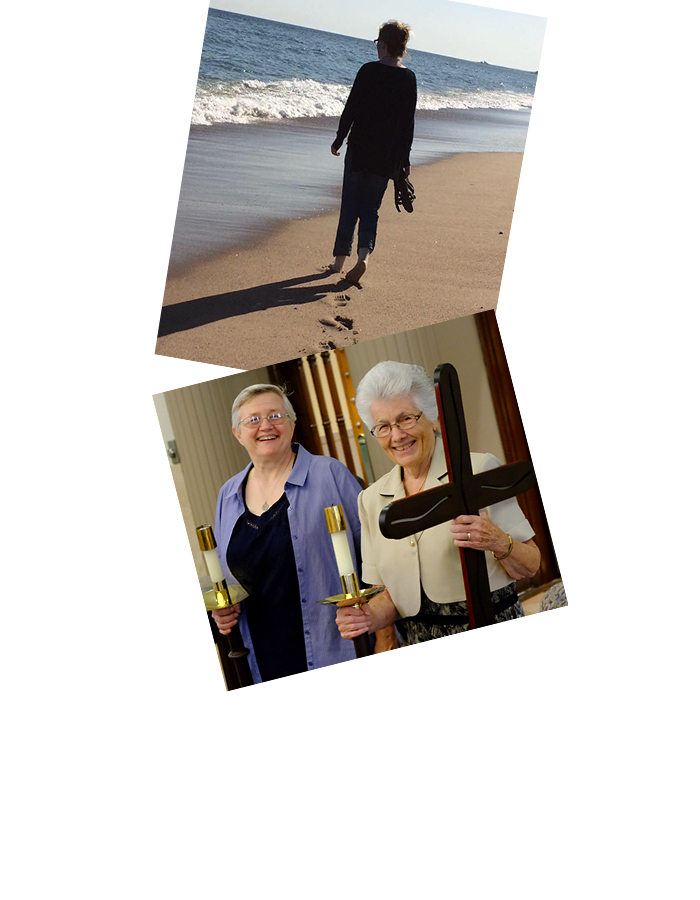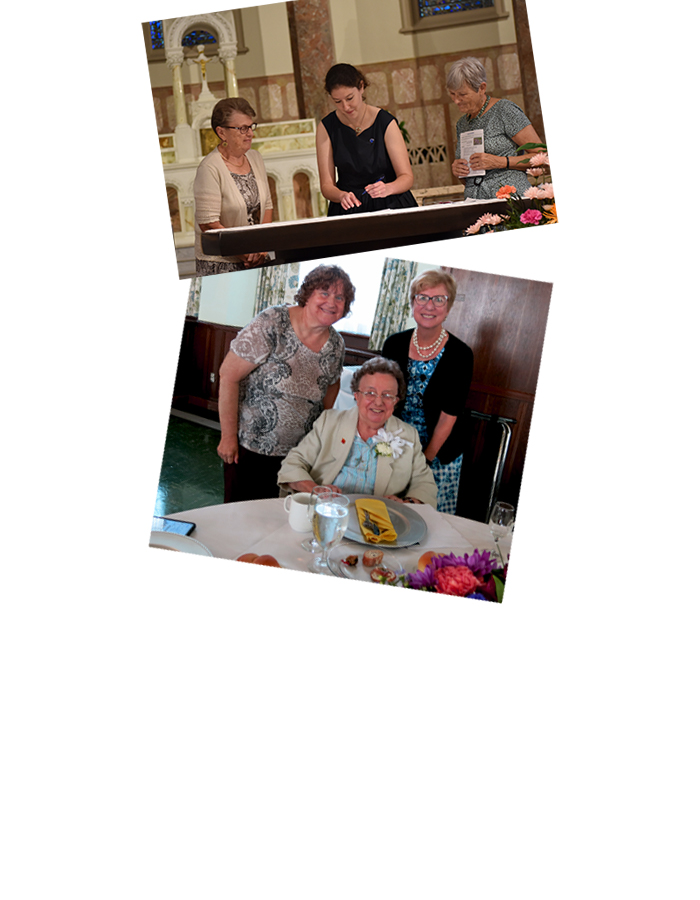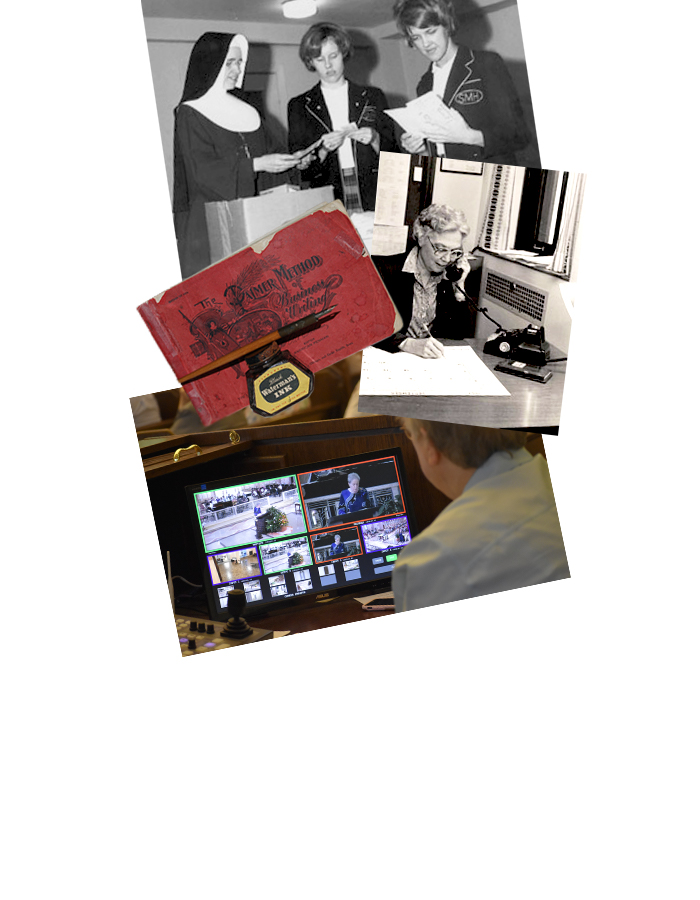 There is no IHM educational institution better known by individual IHMs than Marygrove College. Upon learning that the vast majority of them earned their undergraduate degrees from the college, a lay board member once remarked, “I see you eat your own cooking!”
There is no IHM educational institution better known by individual IHMs than Marygrove College. Upon learning that the vast majority of them earned their undergraduate degrees from the college, a lay board member once remarked, “I see you eat your own cooking!”
And indeed according to the college catalogue (1991-93) “Marygrove is the direct descendant of the original St. Mary Academy (1846). By the beginning of the twentieth century, the Academy began to offer college-level courses and by 1905 the sisters had built a separate St. Mary College. In 1910, the State of Michigan empowered the college to grant degrees and in 1914, the State Department of Education authorized it to grant teaching certificates. Those original charters are still in effect today.”
Just months before the land was incorporated into the city of Detroit in 1922, Mother Domitilla Donahue purchased it for $241,000. Even with help from the St. Mary Alumnae Association and graduates of IHM schools and others, it remained for the congregation to borrow $4 million to build and equip the college. The college was renamed in 1925, following a contest among the sisters, and the cornerstone in Detroit was laid that same year. It opened to students in September 1927 and was officially dedicated on Founders Day, Nov. 10, 1927.
 Less known to our publics was the return of Marygrove education to Monroe for some 20 years in the Sister Formation Movement. With some joint faculty from 1950-1969, new entrants completed their college education while becoming IHMs in a rigorous five-year program. This provided an intense spiritual and intellectual preparation, but it did not offer the camaraderie with classmates on the Detroit campus. However, many activities since then have afforded all “alums” opportunities to collaborate, to socialize and to grow together.
Less known to our publics was the return of Marygrove education to Monroe for some 20 years in the Sister Formation Movement. With some joint faculty from 1950-1969, new entrants completed their college education while becoming IHMs in a rigorous five-year program. This provided an intense spiritual and intellectual preparation, but it did not offer the camaraderie with classmates on the Detroit campus. However, many activities since then have afforded all “alums” opportunities to collaborate, to socialize and to grow together.
Celebrating 51 years since graduation, the 1963 alumnae rightly pride themselves on the fruits of their Marygrove degrees. For instance, Mary Masi Angotte, a social work major, now works for Kaiser Permanente, the largest managed care organization in the United States. Monique Paul Garrity joined the World Bank, and in 2000, she represented the World Bank at the United Nations. Since 2006 she has worked for Partners for Haitian Children and the Little Sisters of St. Therese, hoping that one of those children might attend Marygrove. Mary Lou Wasserman Dusseau raised 10 children, home-schooling the last seven of them. Reflecting on her years at Marygrove, she writes of the faculty, “… those beautiful women who were among the finest professors ever stepping before a classroom. They played a major role in the women we are today…”
1963 also marked the approximate midpoint in the history of the college as well as the decade of accelerated changes in society, in the Church (Vatican II marked 50 years in 2013), in Detroit, and at Marygrove College. Following the riots of 1967, Marygrove made a concerted effort to match the new complexion and culture of the city with a goal of “68 for ’68” by offering a scholarship to a graduate of each Detroit public high school. Working women with family responsibilities peopled the campus, giving the college a unique niche. The invitation to merge in 1990 with neighboring Mercy College and University of Detroit made clear to the college the growth it could not surrender.
Detroit, and at Marygrove College. Following the riots of 1967, Marygrove made a concerted effort to match the new complexion and culture of the city with a goal of “68 for ’68” by offering a scholarship to a graduate of each Detroit public high school. Working women with family responsibilities peopled the campus, giving the college a unique niche. The invitation to merge in 1990 with neighboring Mercy College and University of Detroit made clear to the college the growth it could not surrender.
 Innovation, always an ingredient of the curriculum, started to anticipate the new century with programs beyond the campus. Distance learning in the Masters in the Art of Education moved beyond Michigan and the Study Abroad Program opened the international community to Detroiters. The American Authors Series, now 25 years old, annually brings to campus a nationally acclaimed African-American author who models and entices students to join their ranks.
Innovation, always an ingredient of the curriculum, started to anticipate the new century with programs beyond the campus. Distance learning in the Masters in the Art of Education moved beyond Michigan and the Study Abroad Program opened the international community to Detroiters. The American Authors Series, now 25 years old, annually brings to campus a nationally acclaimed African-American author who models and entices students to join their ranks.
Since 2006, urban leadership has reached central importance, and Detroit has never needed it more. The initiative “Building our Leadership in Detroit” (BOLD) permeates the curriculum and all other activities of today’s Marygrove. Rooted in the time-honored values of gospel, social justice, educational excellence and diversity, the urban leadership principles expand the horizon to specify ethical integrity, effective communication, systems thinking, intentional inclusion and collaboration.
While Detroit deals with destruction and diminishment, even bankruptcy, Marygrove stands within its boundaries, transforming its citizens one by one through education and working for a future full of hope. I invite you to tour Marygrove College on campus and/or on the website www.marygrove.edu.
— Carol Quigley, IHM
Class of 1963










